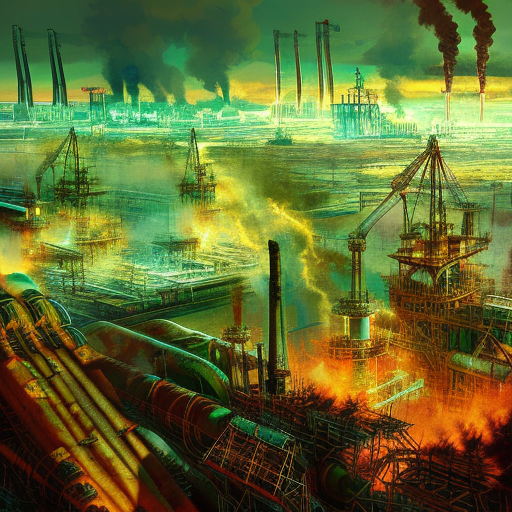The Prize: The Epic Quest for Oil, Money, and Power
One-line summary: “The Prize” is a comprehensive and captivating history of the oil industry, exploring the political, economic, and social impact of oil on the world.
The Birth of the Oil Industry
“The Prize” by Daniel Yergin takes readers on an epic journey through the history of the oil industry, from its humble beginnings to its global dominance. The book delves into the complex interplay between politics, economics, and power that has shaped the oil industry and its impact on society.
Yergin starts by recounting the birth of the oil industry in the mid-19th century, when oil was primarily used for lighting and lubrication. He introduces key figures like John D. Rockefeller, who played a pivotal role in the rise of the oil industry through his company, Standard Oil. Rockefeller’s ruthless business tactics and consolidation of the industry set the stage for the immense power and influence that oil would come to wield.
The Geopolitics of Oil
Yergin then explores the geopolitical aspects of oil, highlighting how it has been a driving force behind major conflicts and power struggles throughout history. He examines the role of oil in both World Wars, demonstrating how access to oil resources became a strategic imperative for nations seeking to secure their energy needs.
The author also delves into the rise of OPEC (Organization of the Petroleum Exporting Countries) and its impact on global oil markets. Yergin provides a detailed account of the 1973 oil crisis, when OPEC imposed an embargo on oil exports to countries supporting Israel in the Yom Kippur War. This event sent shockwaves through the global economy, leading to skyrocketing oil prices and highlighting the vulnerability of nations heavily reliant on oil imports.
The Environmental and Economic Challenges
“The Prize” also addresses the environmental and economic challenges associated with the oil industry. Yergin discusses the environmental impact of oil extraction and consumption, including the devastating effects of oil spills and the contribution of fossil fuels to climate change. He also examines the economic consequences of oil dependence, such as the boom and bust cycles experienced by oil-producing nations and the volatility of oil prices.
Yergin concludes the book by discussing the future of the oil industry and the potential for renewable energy sources to disrupt the dominance of oil. He highlights the growing importance of sustainability and the need for a transition to cleaner energy alternatives.
- Oil has played a pivotal role in shaping the modern world, influencing politics, economics, and power dynamics.
- The rise of OPEC and the 1973 oil crisis highlighted the vulnerability of nations heavily reliant on oil imports.
- The oil industry has significant environmental impacts, including oil spills and contributing to climate change.
- The future of the oil industry is uncertain, with renewable energy sources posing a potential challenge to its dominance.
“The Prize” provides a comprehensive and engaging account of the history and impact of the oil industry, shedding light on the complex forces that have shaped our world. Through its exploration of politics, economics, and power, the book offers valuable insights into the challenges and opportunities facing the oil industry in the 21st century.












